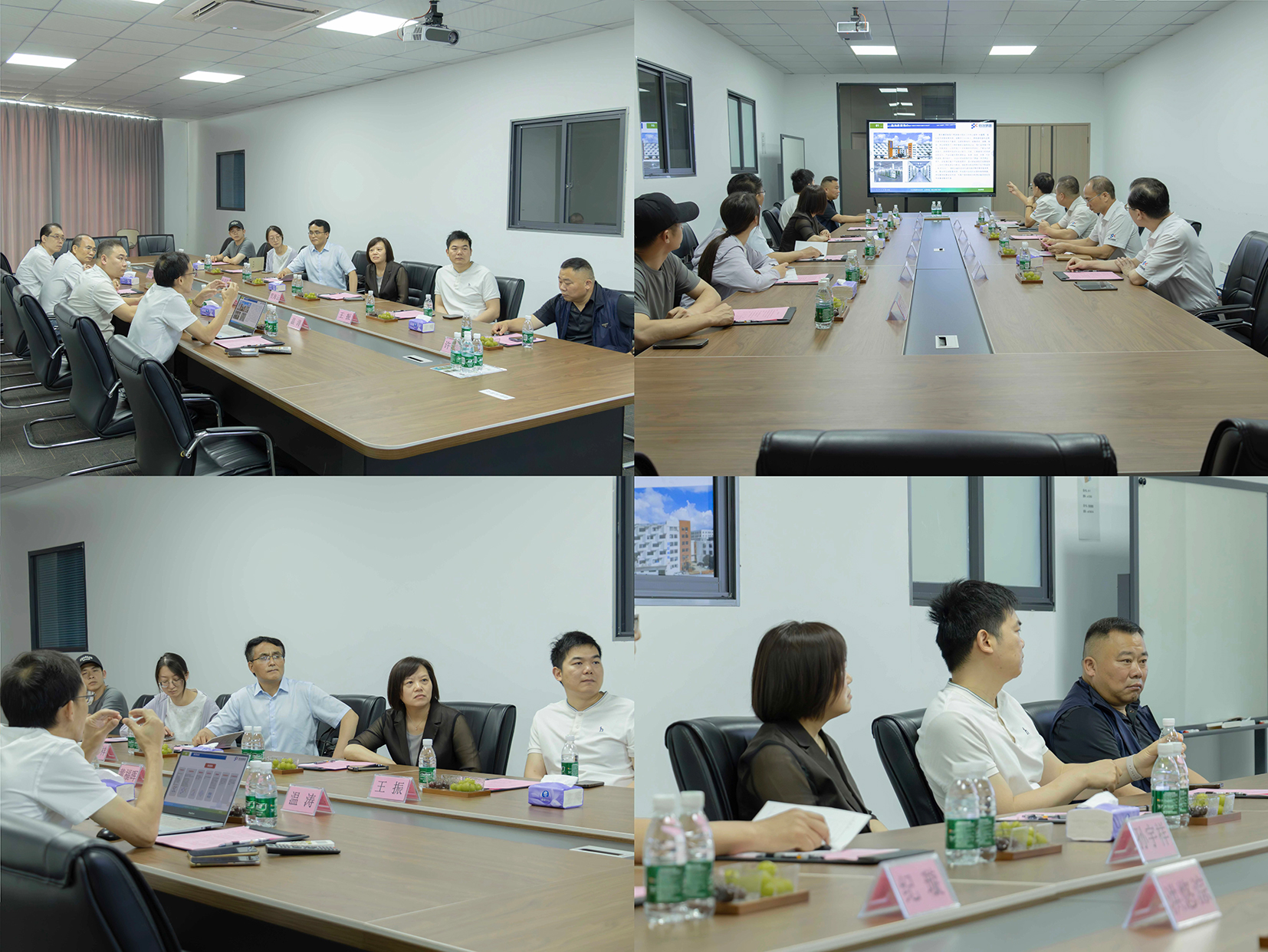On June 25th, Shengchuang welcomed distinguished guests from afar - a professional inspection team composed of members of the Party Committee of Yancheng Urban Construction Investment Group and Yancheng Resource Recycling Group. The one-day in-depth inspection and exchange focused on the frontiers of new energy battery recycling and energy storage technologies, jointly discussing the core propositions of the full-life cycle management of lithium batteries: cascading utilization and regenerative recycling.
During the compact and fulfilling schedule, the inspection team visited our R&D center and modern production workshops. We comprehensively demonstrated to our Yancheng partners Shengchuang's core technical capabilities and industrialization achievements in lithium battery recycling, disassembly, cascading utilization, and high-value material regeneration and extraction.
Facing the increasingly prominent "retirement wave" of lithium batteries, their green and efficient end has become the key to the sustainable development of the industry and even society. During the visit, we highlighted the importance of cascading utilization of lithium battery energy:
- Extending value, reducing costs, and increasing efficiency : When the capacity of power batteries decays to the point where they no longer meet the requirements of electric vehicles, their remaining capacity (usually still 70%-80%) can be perfectly applied to energy storage power stations, backup power supplies, low-speed electric vehicles, and other fields with relatively low requirements for energy density through strict screening, capacity sorting, and system integration. This not only significantly extends the service life of batteries but also greatly reduces the initial investment cost of energy storage systems, setting a model for resource conservation.
- Alleviating resource pressure : Cascading utilization delays the time for batteries to enter the final recycling process, effectively relieving the pressure on the continuous mining of strategic mineral resources such as lithium, cobalt, and nickel in the upstream.
When batteries finally complete their mission of cascading utilization, efficient and environmentally friendly regenerative recycling becomes the crucial "last mile" to achieve resource closure:
- The core of resource sustainability : We adopt advanced physical crushing and sorting and green hydrometallurgy processes to accurately and efficiently extract high-purity valuable metals such as lithium, cobalt, nickel, and manganese from waste batteries. Resources mined from these "urban mines" can be directly used to produce new batteries, significantly reducing dependence on primary minerals and ensuring the supply security and sustainability of the new energy industry chain.
- Protecting lucid waters and lush mountains : Standardized recycling and regenerative treatment can effectively prevent the pollution of soil and water bodies by heavy metals and electrolytes in waste batteries, serving as a solid defense line for environmental protection.
Subsequently, during the symposium, the two sides had a candid and constructive exchange. The leaders of Yancheng highly appraised our company's technical strength and industrialization practice in the field of lithium battery circular utilization and shared Yancheng's plans and challenges in promoting the development of the resource recycling industry. The two sides had in-depth discussions on issues of common concern, such as the construction of a large-scale recycling network for retired batteries, the expansion of cascading utilization scenarios, and the optimization of regenerative technologies and cost control, and expressed their willingness to strengthen cooperation at multiple levels, including technology, resources, and markets, in the future.
Winbond is well aware that promoting the cascade utilization and green recycling of lithium batteries is not only a technical issue but also an era mission concerning national resource security, environmental protection, and the healthy development of the new energy industry. In this process, core equipment such as battery charge discharge testers provides key data support for state evaluation and life prediction in cascade utilization scenarios through precise monitoring of battery performance parameters, serving as an important guarantee for the implementation of technologies.

The visit of the Yancheng inspection team is not only an affirmation of our work in the field of lithium battery recycling but also a spur. We look forward to joining hands with our Yancheng partners to expand and implement advanced recycling concepts and technical experience—relying on Lithium Battery Testing Equipment to build a full-life-cycle performance evaluation system, optimize battery screening and reassembly solutions in cascade utilization, and jointly contribute scientific and technological strength to building a resource-conserving and environment-friendly society under the "double carbon" goal!
We have always believed that the "retirement" of lithium batteries is not the end but a green starting point for resource circulation and value rebirth!





